Van Zweden, DSO showcase unlikely musical siblings–Glass and Bruckner
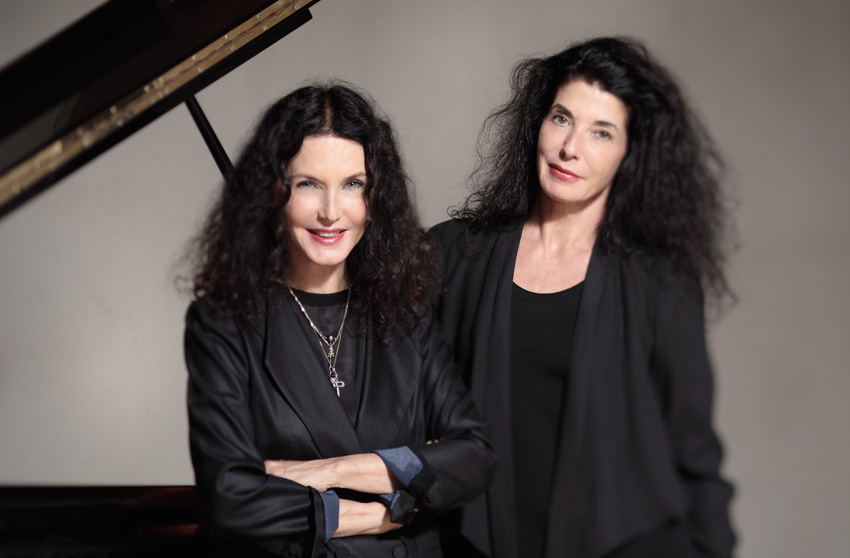
Katia and Marielle Labeque performed Philip Glass’s Concerto for Two Pianos with Jaap van Zweden and the Dallas Symphony Orchestra Friday night.
The phrase “flawed masterpiece” kept coming to mind Friday night as soon-to-depart music direct Jaap van Zweden and the Dallas Symphony Orchestra offered up a pair of intriguing but problematic works at Meyerson Symphony Center.
Philip Glass’s redundantly titled Double Concerto for Two Pianos and Orchestra has been making the rounds internationally since its premiere in Los Angeles in 2015. Katia Labeque and Marielle Labeque, for whom it was written, appeared as soloists for this concert; they have previously performed the work with van Zweden conducting in New York and Paris.
The work’s most glaring and obvious problem arises at the opening moment, when full orchestra and soloists enter simultaneously and noisily; Glass’s characteristic clarity here disappears in a relentless tidal wave of sound. All parties involved plowed ahead bravely and with competence and obvious devotion, most of which was obliterated by the thick orchestration.
But the work shifts to calm and clarity in the coda of the first movement, and the careful voicing and precise technique of the Labeques emerged admirably. A more traditional, conversational concerto style emerges in the second movement, in which Glass very successfully explores interaction between soloists and orchestra, and among the choirs within the orchestra. This produces an engagingly complex marriage of minimalism and tradition.
The third movement offers a questioning, ear-grabbing chaconne motif that builds subtly to an almost neo-romantic climax. Glass clearly intends a concerto grosso interplay here, and van Zweden and the Labeques neatly pulled off this effect.
Placing Glass next to Bruckner on the same program highlights surprising similarities and common ground between these two very different composers. Both require a level of surrender to the experience of the music on the part of the listener. Although the first movement of Glass’s Double Concerto was somewhat miscalculated, Glass generally has a firmer grasp of structure and awareness of how he affects the listener; in his Eighth Symphony, Bruckner erects a gigantic structure in which he patches magnificent, sometimes breathtaking moments together with tedious, predictable transitions.
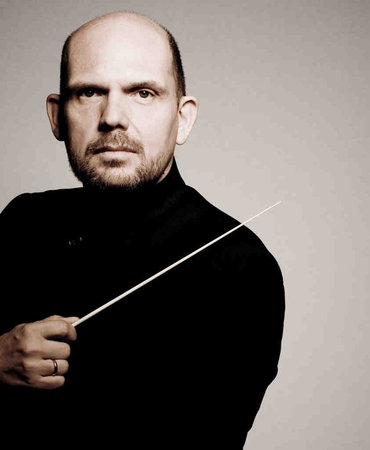
Jaap van Zweden
During his tenure with the Dallas Symphony, van Zweden has devotedly presented a generous selection of the symphonies of Bruckner, and has trained this orchestra in the intricacies of Bruckner’s sound world. The result, Friday night, was a frequently engaging exploration of a work that is often thrilling in spite of its flaws. A careful pacing of the introduction of the first movement, for instance, allowed the delicate string tremolo and the first blazing full fortissimo, just a few bars in, to fit together magically, setting the stage for the ensuing symphonic epic.
For this listener, the second movement Scherzo, with its radiant outer sections and the often reflective inner section, proved the most convincing; van Zweden very nearly succeeded in rescuing Bruckner from his structural miscalculations here. (Bruckner, in his attempt to emulate Beethoven, makes the sun rise twice in this movement.) Van Zweden and the orchestra likewise carefully built the gradual enrichment of orchestral tone in the serenely static third movement for a fine effect.
In the bloated grandeur of the final movement, Bruckner didn’t quite know when to quit. But van Zweden and orchestra kept the audience alert and engage to the end of this seventy-minute pilgrimage. Whatever else one might think of Bruckner, his aspirations were high, and van Zweden’s exploration of his canon has been a worthwhile experience for Dallas audiences through the years.
The program will be repeated 7:30 p.m. Saturday at Meyerson Symphony Center. mydso.org; 214-692-0203.
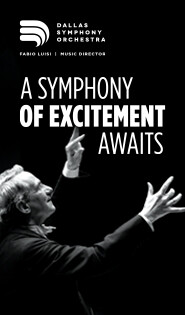
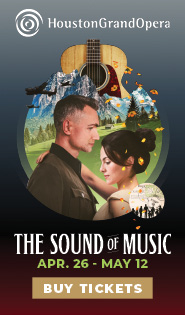
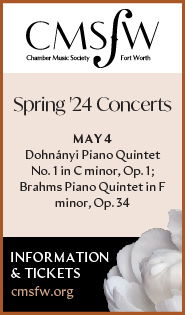
Posted Feb 04, 2018 at 10:16 pm by George John
Have been missing your reviews of the Houston Symphony. The Corigliano Percussion Concerto was amazing. Regarding the Bruckner 8th, the slow movement alone assures his place in history. Did you hear Graf do it?